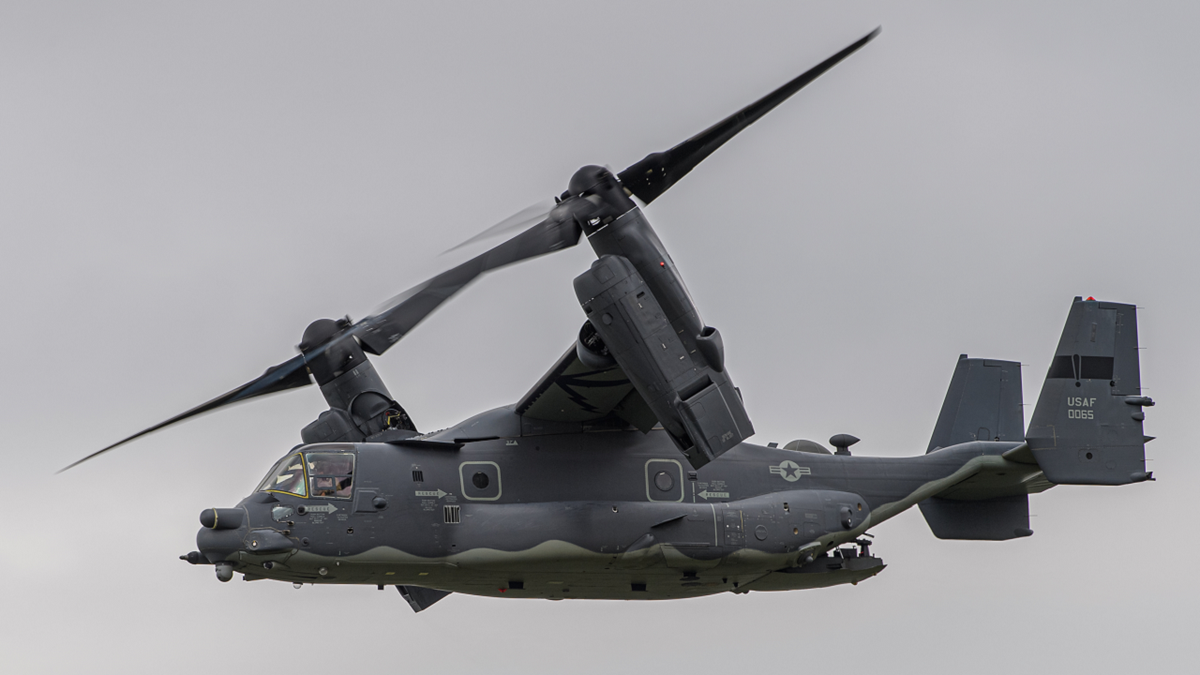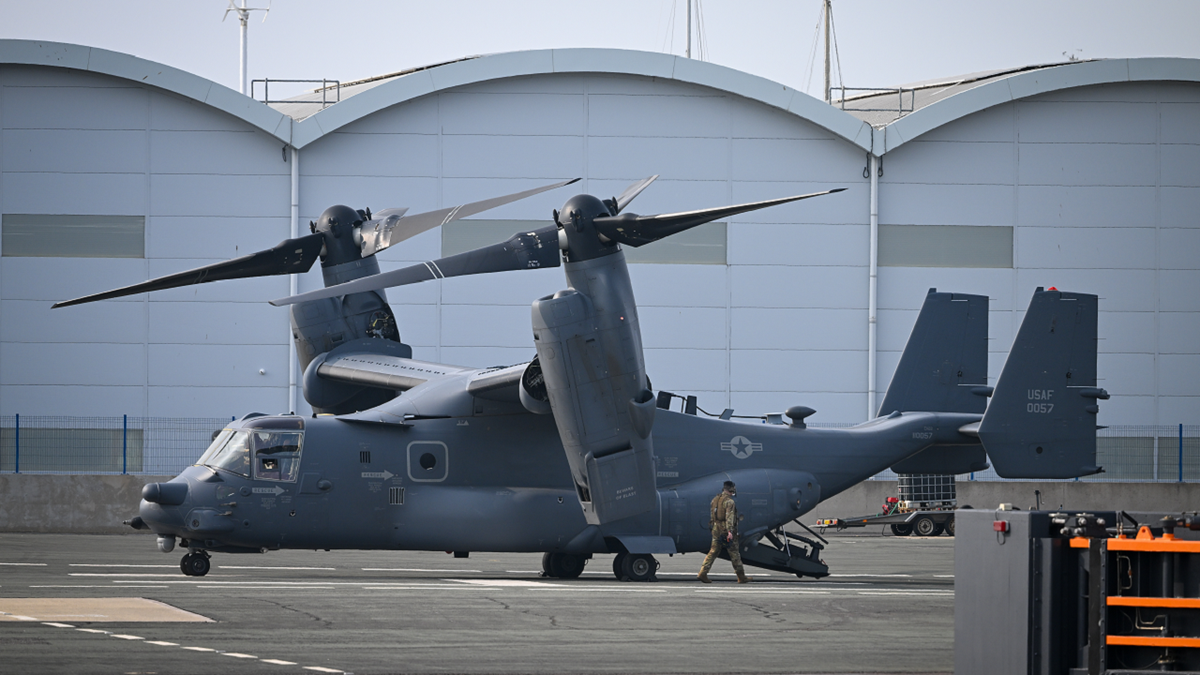Fox News Flash top headlines for August 17
Fox News Flash top headlines are here. Check out what's clicking on Foxnews.com.
The Air Force Special Operations Command (AFSOC) has grounded all 52 of its CV-22 Ospreys until further notice because of an "increased number of safety incidents" involving a mishap with the aircraft’s clutch, a report says.
The decision impacting the CV-22 Osprey — a cutting-edge tiltrotor aircraft that can take off vertically — comes after two safety incidents in the last six weeks and four in total since 2017, AFSOC spokeswoman Lt. Col. Becky Heyse told Breaking Defense.
"The safety of our Airmen is of the utmost importance, therefore no AFSOC CV-22s will fly until we will determine the cause of the hard clutch engagements and risk control measures are put in place," she told the digital magazine.
MARINE CORPS INVESTIGATION FINDS PILOT ERROR KILLED FOUR MARINES IN NORWAY

A U.S. Air Force Bell Boeing CV-22 Osprey tiltrotor military aircraft takes off for an evening training flight from RAF Mildenhall in Suffolk, England, in July 2020. (Jon Hobley/MI News/NurPhoto via Getty Images)
The AFSOC told the website that the clutch inside a gearbox connecting one of the aircraft’s two engines to its rotors is slipping, causing power to shift over to the other as part of a design feature to keep the aircraft flying in the event of a partial engine failure.
US CARRIES OUT ICBM TEST AFTER DELAYING OVER TENSIONS WITH CHINA
In most cases, according to Breaking Defense, the initial clutch re-engages and the power shifts back to the first engine, but Heyse said "if the aircrew were unable to control the aircraft when the incident occurs, it could result in loss of control and uncontrolled landing of the aircraft."

A U.S. Air Force CV-22 Osprey tiltrotor military aircraft is seen in Portland, England, in March. (Finnbarr Webster/Getty Images)
But so far, she says, the incidents have not caused any injuries or deaths "due in large part to the skill and professionalism of our Air Commandos who operate the CV-22."
CLICK HERE TO GET THE FOX NEWS APP
"In coordination with the Joint Program Office, AFSOC has been unable to gather enough engineering data analysis to accurately identify root cause, so it’s unknown if it’s mechanical, design, software or some combination of any of those," Heyse also told Breaking Defense.

Two CV-22 Osprey tiltrotor military aircraft of the U.S. Air Force fly over Kyiv, Ukraine, during air drills in March 2020. (Pavlo Gonchar/SOPA Images/LightRocket via Getty Images)
The website reports that after the incidents occur, in many cases, the gearboxes and engines require replacements — damage that costs in excess of $2.5 million to repair.











































